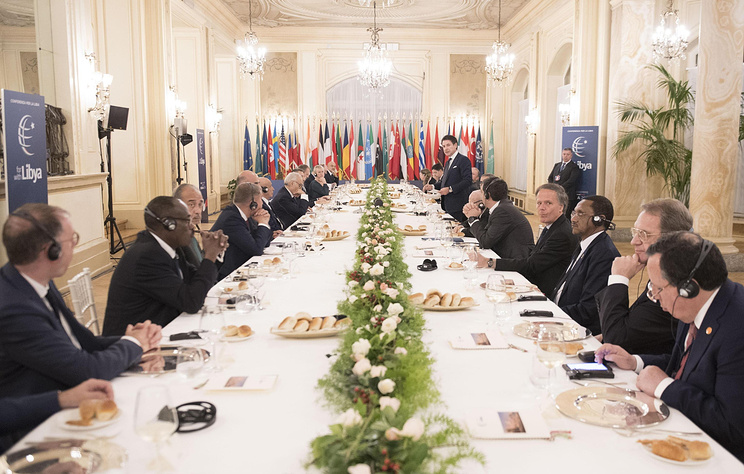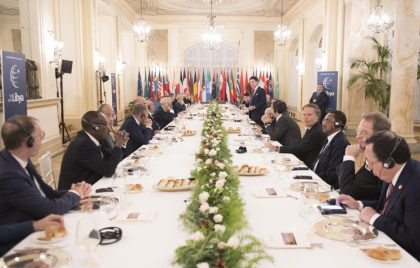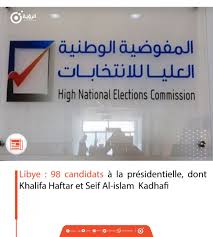The UN-brokered agreement inked by Libya’s warring factions in the Moroccan coastal town of Skhirat remains the only viable basis for achieving a long-term solution to the Libyan conflict, said on Tuesday Sergei Prikhodko, 1st Deputy Chief of the Russian Government Staff.
“All parties in Libya must seek compromises based on the Skhirat accord which has been backed by UN Security Council and the international community”, added the Russian official, who insisted on the need to preserve the sovereignty and territorial integrity of the North African country.
“There is no other alternative to negotiation and all Libyan parties must continue dialogue to reach the necessary compromises”, explained Mr.Sergei, adding that “one of the main obstacles to peace in Libya are the insecurity and the presence of many terrorist groups like ISIS and al-Qaida.
These remarks coincide with the international conference on Libya, currently held in Palermo, Italy. The event is bringing together Libyan and international stakeholders to discuss a plan to resolve the political crisis in the North African country.
The Italian government organized the conference after the Paris summit held in France in May. At the Paris summit, Libyan leaders agreed to hold a referendum on the draft constitution by September 16 and presidential and parliamentary elections on December 10.
However, these elections, initially viewed as a step toward stability, were announced without any details on how to deal with the security issue besides the logistic challenges of organizing national elections in a short time.
United Nations Special Envoy to Libya, Ghassan Salamé, conceded Monday in Palermo that violence in the North African nation had forced a postponement of the election date.
Speaking on the sideline of the Palermo conference, Salame said the election would be held between late March and late June. The envoy said 80 percent of Libyans insist on having elections.
Since the NATO-backed revolution ousted Gaddafi in 2011, the internationally recognized Libyan authorities have struggled with almost constant instability as heavily armed brigades of former rebels and their political allies wrestled for control of the vast country and its oil resources.
Foreign interference in Libya has also been criticized by Libyans and some European countries since the fall of the Gadhafi regime.
The United States also has an interest in the viability of the Mediterranean region, in particular the stability of important allies such as Italy, Spain, and Greece. All countries are directly threatened by illegal immigration as well as by the strengthening of international criminal organizations and smugglers of illegal migrants.
According to some experts, the stabilization of Libya includes containment of terrorism and preventing the spillover of the conflict to Libya’s northern African and Sahel neighbors.




